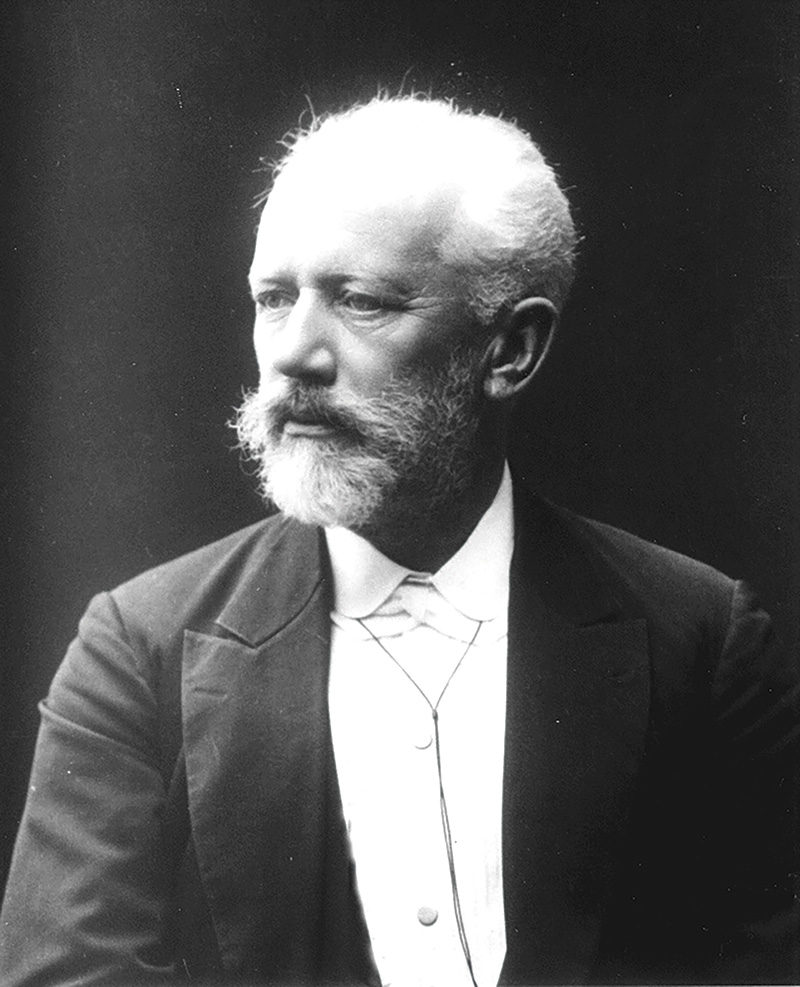Pyotr Ilyich Tchaikovsky

- Born: May 7, 1840 in Kamsko-Votkinsk, Russia
- Died: November 6, 1893 in St. Petersburg, Russia
Romeo and Juliet Overture-Fantasie
- Composed: 1869
- Premiere: March 16, 1870 by the Russian Musical Society conducted by Nikolai Rubinstein, in Moscow
- Duration: approx. 21 minutes
Composer Mily Balakirev (1837–1910) was something of a busybody. He was not content simply writing his own music—he wanted a
hand in the creation of music by several other composers as well. He was the leader of the group of Russian nationalists known as The Mighty Five.
Balakirev wrote to Tchaikovsky in the fall of 1869, suggesting the composition of an overture based on Shakespeare’s Romeo and Juliet. Balakirev included some music he felt appropriate for the opening; he described exact working methods to help Tchaikovsky find inspiration, including prescribing the tonalities for the various sections of the piece. Tchaikovsky went so far as to submit the completed composition to Balakirev for corrections.
Balakirev liked much of the work, but he criticized the first theme. It reminded him of a Haydn quartet whereas he felt it should have the “old-world catholicism” of a Liszt chorale. He did not like the slow introduction at all, and he did not approve of the ending. Tchaikovsky meekly made the revisions, although he eventually became dissatisfied and worked on further extensive changes of his own.
It is not surprising that Tchaikovsky readily complied with Balakirev’s suggestion for a piece based on Shakespeare’s love-tragedy. The subject was appropriate, because the composer himself was at the time involved in a hopeless love. A few months earlier he had fallen under the spell of singer Désirée Artôt. Tchaikovsky had not yet acknowledged his homosexuality, and he was eager to meet this enticing lady. He did see her frequently, and he began to talk about marriage. But Artôt herself prevented these difficult issues from ever coming up by marrying instead a Spanish baritone named Mariano Padilla y Ramos.
Tchaikovsky had really thought he was in love. Composing Romeo and Juliet must have been a sufficient catharsis, though, as the composer subsequently resumed his life without undue grief.
Balakirev wrote him, upon receiving the finished score, with praise but also a rather unkind irony:
It is simply fascinating. I often play it and should like to hug you for it. In it is the tenderness and longing of love, and much more that ought to go straight to the heart of the immortal Albrecht. When I play this I visualize you wallowing in your bath with Artôt-Padilla herself rubbing your stomach ardently with fragrant soap suds.
Surely Tchaikovsky was pleased with Balakirev’s praise; his reaction to the reference to his non-affair, however, is not recorded.
—Adapted from Jonathan D. Kramer